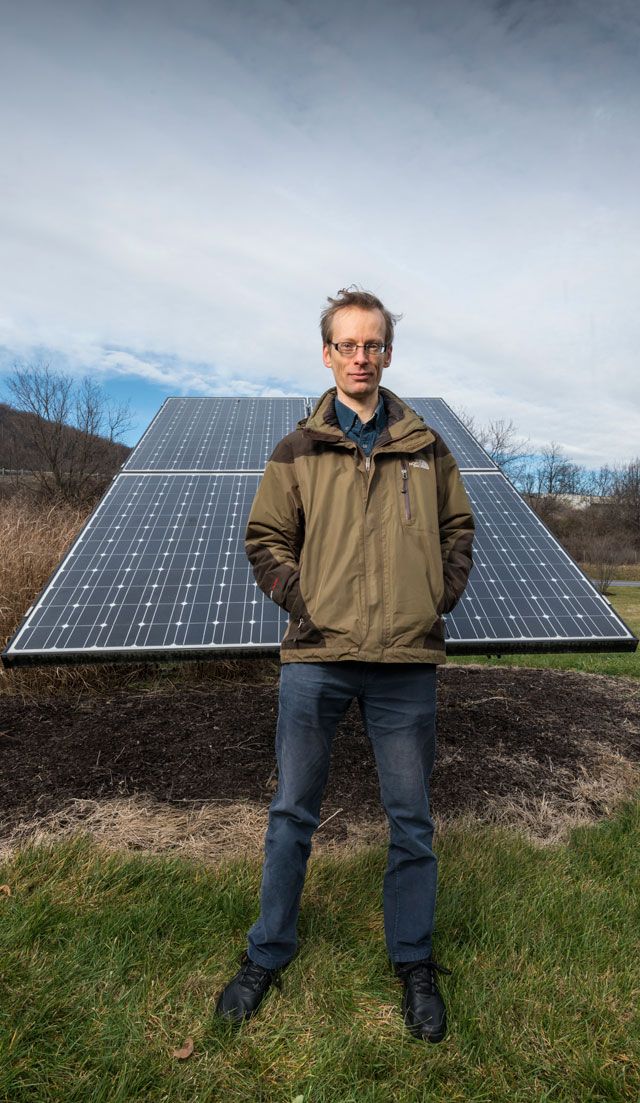Recent years have witnessed the rise of an economic revolution of sorts—the advent of the so-called sharing economy. Businesses such as Uber, Lyft, and Airbnb have created a new kind of marketplace, in essence, by relying on the investments of others.
Could the electricity marketplace be next?

Read the full version of this story in the Lehigh Engineering News Center.
Boris Defourny, assistant professor of industrial and systems engineering, seeks to understand how this could take shape. He's recently won a National Science Foundation grant to analyze associated market models and develop theory and algorithmic strategies to help optimize the integration of renewable energy for usage across the power grid.
Defourny believes the distributed nature of renewable energy capture, which can reasonably be undertaken by everyone from individual households to major corporations and government agencies, makes it ripe for a similar economic disruption.
“Renewables are on the rise,” he says. “Yet in terms of instantaneous production levels, wind and solar are inherently volatile, and as such cannot be relied upon and fully utilized. A better coordination of these smaller, diverse, distributed power sources, coupled with an expansion of distributed energy storage resources, would allow for greater overall utilization of clean, renewable energy.”
Defourny seeks to incentivize small energy producers and residential consumers to become suppliers of clean energy. Load aggregators and utility firms would leverage that clean power for other customers in real-time, even as its supply, and overall demand, fluctuates.
“At the moment,” he says, “contractual and operational issues stand in the way. Yet the ability to seamlessly integrate more clean energy into the grid would, by definition, drastically reduce reliance on fossil fuels as well as associated environmental impact.”
Defourny is developing business and technology models that would create mutually agreeable conditions for both the consumer/supplier and the utility firms, and studying the control mechanisms, contracts, and transaction environments for optimal pooling of clean energy.
“It is a classic network effect,” he says. “Greater participation yields greater individual and societal benefit. It needs a critical mass to really take off, and hopefully we can build some tools to help move the market in that direction.”

